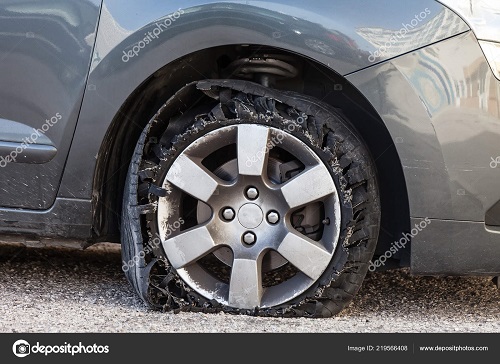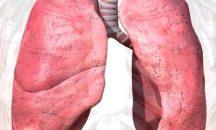‘Bad roads, deadly car tyres’(1)

Our roads have been turned into battlefields. Lawlessness reigns supreme. Lives and property are destroyed or lost without anyone losing sleep.
What I am referring to as roads are in most places stretches of land where manholes and potholes compete for prominence. Sometimes mother luck smiles at us and we have strips of tarred areas reminding us that once upon a time there was a road or a semblance of a road there.
Imagine dodging these craters and competing with people totally drunk yet in charge of a steering wheel. Add a good dose of noise pollution from blarring horns and do not forget our car tyres and road (or is it battle-field) worthiness of our vehicles.
Today we have Abenaa Antwiwaa Adusei (AA) who will tackle a vital part of our road safety that we so often take for granted. Abenaa practiced as a nurse for six years before pursuing an MSc in Occupational Hygiene, which in her opinion positions her to prevent injuries and ill-health rather than wait to see patients at the hospital.
KCE: I am glad you made valuable time to share vital information with my readers.
AA: Same here. Thank you and your readers for allowing me to share this with you.
KCE: You are extremely passionate about etiquette and safety, what motivates you?
AA:The results of ignoring safety is always expensive, in terms of cost of compensation, repair/replacement, loss of corporate image, accidents, disability, loss of lives and properties. All these are most of the time easily preventable by observing safety rules, hence my extreme passion. The popular saying is that ‘prevention is better than cure’ and I totally agree; why cure at an expensive price when you can prevent with just a little!
KCE: Our roads could be described as death traps, dodging these holes has caused many accidents and people have been maimed or precious lives lost. What is your take on safety on our roads?
AA:Safety on our roads, indeed, leaves much to be desired. A lot is being done by the National Road Safety Commission to improve safety on our roads but there is more room for improvement.
Almost everyone has lost a family member or a friend or knows someone who has been disabled through road accidents. So many factors come together to contribute to poor safety on our roads. Unfortunately, the next victim to poor road safety could be you or me.
KCE: You believe that beyond the poor roads, drunk drivers, poor sight etc., there is another major factor that makes life on our roads even more dangerous. Kindly enlighten us
AA: Generally, causes of road traffic accidents (RTA) have been grouped into 3 main components; the human factor, road/environment factor and the vehicle factor. Human factor deals with actions and inactions on the part of drivers, passengers, pedestrians and road safety law-enforcement personnel. Road/environment factors deals with the nature and designs of our roads, lighting systems, traffic calming measures, speed limits, pedestrian facilities etc. Vehicle factor takes a look at design/size of the vehicle, roadworthiness, braking system, tyres, restraints/seatbelts etc.
KCE: Which of the factors you have listed is in your opinion the most important?
AA: According to an approach called the Human – Environment – Vehicle Interface which looks at the percentage contribution of each of the factors as well as their combinations to RTA; human factor alone is said to contribute about 57%.
This approach makes this factor most important but I guess we can critically look at the vehicular factors with specific emphasis on tyres.
KCE: Which of the factors can easily be corrected with our new found knowledge?
AA: Human factors could be improved upon with continuous education, this may take some time but a simple vehicular factor like poor condition of tyres could be corrected easily. It does not take much to do this.
KCE: Have we lost the fight to have safe roads even before we started?
AA:Yes, to some extent but I guess there is hope. We all have roles to play.
KCE: What practical steps may be taken to ensure that our car tyres are much safer?
AA: i. Proper Inflation/Pressure: Maintaining proper air pressure is the single most important thing drivers can do for their tyres. It is important to check air pressure regularly, to make sure tyres are neither under- nor over-inflated.
One can find the correct tyre pressure for one’s vehicle in the operating manual and in most cases either under the fuel cap, on the inside of the door or glove compartment. Correct pressure values are often different for front and rear tyres and are higher for fully loaded vehicles.
Under-inflation causes increased tread wear on the outside edges (or shoulders) of the tyre. It also generates excessive heat, which weakens components and reduces tyre durability. It reduces fuel economy by increasing rolling resistance – soft tyres make vehicles work harder.
Over-inflation is also detrimental to the tyre. Too much air pressure causes the center of the tread to bear the majority of the vehicle’s weight, which leads to faster and uneven wear. Any kind of uneven wear will shorten the lifespan of tyres.
AS ALWAYS LAUGH OFTEN, ENSURE HYGIENE, WALK AND PRAY EVERYDAY AND REMEMBER IT’S A PRICELESS GIFT TO KNOW YOUR NUMBERS (blood sugar, blood pressure, blood cholesterol, BMI)
Dr. Kojo Cobba Essel
Health Essentials Ltd/Mobissel
(www.healthessentialsgh.com)
*Dr. Essel is a medical doctor, holds an MBA and is ISSA certified in exercise therapy, fitness nutrition and corrective exercise. He is the author of the award-winning book, ‘Unravelling The Essentials of Health & Wealth.’
Thought for the week – “Whatever you practice grows stronger. What will you like to see grow stronger in your life?”
Resource Person: Abenaa Antwiwaa Adusei Her References:
1. Basic Tyre Fundamentals, GOOD YEAR PLUS, www.goodyearplus.com
2. ABC News: http://abcnews. go.com/Blotter/story?id=4988518
3. Rubber Manufacturers Association: http://ww.rma.org
4. The telegraph, www.telegraph. co.uk
Abenaa may be reached on: healthandsafetygh@gmail.com or 0500777 775.















